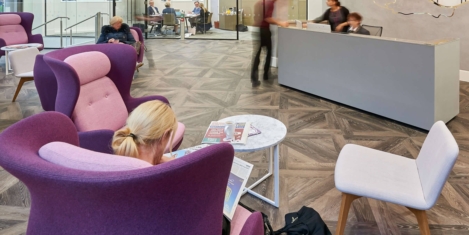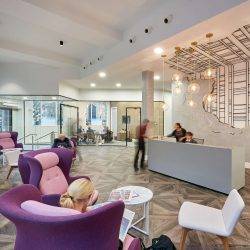To provide the best experiences, we use technologies like cookies to store and/or access device information. Consenting to these technologies will allow us to process data such as browsing behaviour or unique IDs on this site. Not consenting or withdrawing consent, may adversely affect certain features and functions.
The technical storage or access is strictly necessary for the legitimate purpose of enabling the use of a specific service explicitly requested by the subscriber or user, or for the sole purpose of carrying out the transmission of a communication over an electronic communications network.
The technical storage or access is necessary for the legitimate purpose of storing preferences that are not requested by the subscriber or user.
The technical storage or access that is used exclusively for statistical purposes.
The technical storage or access that is used exclusively for anonymous statistical purposes. Without a subpoena, voluntary compliance on the part of your Internet Service Provider, or additional records from a third party, information stored or retrieved for this purpose alone cannot usually be used to identify you.
The technical storage or access is required to create user profiles to send advertising, or to track the user on a website or across several websites for similar marketing purposes.
 Researchers claim to have provided the first large-scale quantitative evidence that people are happier in more beautiful surroundings. The study, led by a team from the Data Science Lab at Warwick Business School, The Alan Turing Institute and the University of Sussex, suggests that this effect does not only hold in areas of natural beauty, but in towns and cities as well. The researchers analysed nearly one million ratings of photographs from an online game, alongside three years of data on the happiness of more than 15,000 people, gathered via a mobile app. More →
Researchers claim to have provided the first large-scale quantitative evidence that people are happier in more beautiful surroundings. The study, led by a team from the Data Science Lab at Warwick Business School, The Alan Turing Institute and the University of Sussex, suggests that this effect does not only hold in areas of natural beauty, but in towns and cities as well. The researchers analysed nearly one million ratings of photographs from an online game, alongside three years of data on the happiness of more than 15,000 people, gathered via a mobile app. More →



































March 18, 2019
Artificial Intelligence is transforming the workforce as we know it
by Dennis Spaeth • AI, Comment, Technology
More →